Is a Kia Extended Warranty Worth the Cost? Weighing Dealer vs. Third-Party Options
Understanding Your Kia's Factory Warranty
Before we explore extended warranties, let's briefly touch upon what makes Kia's factory coverage stand out. Kia is renowned for offering one of the best warranties in the automotive industry: a 10-year/100,000-mile powertrain limited warranty and a 5-year/60,000-mile bumper-to-bumper limited warranty. This extensive coverage provides a significant period of worry-free driving for new car owners. However, like all good things, it eventually comes to an end. Once your factory warranty expires, you're solely responsible for any repair costs, which is precisely where an extended warranty, also known as a vehicle service contract, steps in to offer continued protection.
Why Consider a Kia Extended Warranty?
You might be thinking, "My Kia is reliable, do I really need more coverage?" While Kias are known for their quality, no vehicle is immune to wear and tear or unexpected breakdowns. Modern cars, including your Kia, are packed with sophisticated technology and complex systems, from advanced infotainment units to intricate engine components. When these high-tech parts fail, the repair bills can be substantial. An extended car warranty can shield you from these potentially high, out-of-pocket expenses. It's essentially a budget-friendly way to mitigate the financial risk of unforeseen mechanical failures after your manufacturer's warranty runs out. For many, it's not just about saving money on repairs, but also about the invaluable peace of mind that comes with knowing you're covered.
Dealer Extended Warranties (Kia Protection Plan): The Inside Scoop
When you first bought your Kia, you were likely offered an extended warranty directly from the dealership. This is typically a Kia-branded extended warranty, often referred to as a Kia Protection Plan. These plans are designed specifically for Kia vehicles and are backed by the manufacturer or a reputable third party chosen by Kia.
Pros of Dealer Extended Warranties:
- Manufacturer Backing: Often seen as more reliable since it's associated with the Kia brand.
- Genuine Kia Parts & Service: Repairs are typically performed at authorized Kia service centers using genuine Kia parts and by factory-trained technicians, ensuring quality and adherence to specifications.
- Seamless Integration: Can often be rolled into your original car financing, making monthly payments straightforward.
- Transferability: Many dealer plans are transferable to a new owner, which can increase your Kia's resale value.
Cons of Dealer Extended Warranties:
- Higher Kia Warranty Cost: Dealer plans tend to be more expensive than third-party options due to the branding and included benefits.
- Less Flexibility: You might be restricted to servicing your vehicle only at Kia dealerships, which can be inconvenient if you travel or move.
- Sales Pressure: Dealerships often employ high-pressure sales tactics to get you to purchase their plans at the time of sale.
- Limited Customization: Plan options might be less flexible in terms of coverage levels and deductibles compared to third-party providers.
Third-Party Extended Warranties: Exploring Your Options
Beyond the dealership, a vast market of third-party extended warranty providers offers vehicle service contracts for your Kia. These companies specialize in extended coverage for various makes and models, providing a competitive alternative to dealer plans.
Pros of Third-Party Extended Warranties:
- More Affordable: Often significantly cheaper than dealer options, offering better value for similar coverage.
- Greater Flexibility: Many providers allow you to choose any ASE-certified mechanic or repair shop, giving you more options and convenience.
- Customizable Plans: You can often tailor the coverage, deductible, and term length to better suit your needs and budget.
- Competitive Market: The sheer number of providers means more competition, which can drive down prices and improve service.
Cons of Third-Party Extended Warranties:
- Not Manufacturer Backed: The primary drawback is that these plans are not directly endorsed or backed by Kia, which might raise concerns for some owners.
- Reputation Varies: The quality and reliability of providers can vary wildly. It's crucial to research thoroughly to avoid disreputable companies.
- Potential for Non-Genuine Parts: While many allow certified mechanics, they might not always use genuine Kia parts, which could be a concern for purists.
- Claims Process: The claims process can sometimes be more involved or slower than with a dealer plan, potentially requiring you to pay upfront and seek reimbursement.
- Exclusions: Always read the fine print; some third-party plans might have more exclusions or stricter terms than dealer plans.
Key Factors to Compare Before You Buy
Whether you lean towards a dealer-backed Kia Protection Plan or a third-party extended warranty, a thorough comparison is essential. Here's what to look for:
- Coverage Levels: Understand exactly what's covered. "Bumper-to-bumper" (exclusionary) plans cover everything except a short list of exclusions, while "stated component" (inclusionary) plans list exactly what they do cover. Make sure the most expensive components (engine, transmission, electrical systems) are included.
- Deductibles: How much will you pay out of pocket per repair? Deductibles can be per visit or per repair. A higher deductible usually means a lower premium.
- Exclusions: Pay close attention to what's *not* covered. Wear-and-tear items (tires, brake pads, wiper blades), routine maintenance, and pre-existing conditions are almost always excluded.
- Repair Shop Flexibility: Can you go to any ASE-certified mechanic, or are you limited to Kia dealerships?
- Claims Process: Is it a direct payment system where the warranty company pays the repair shop directly, or will you have to pay first and wait for reimbursement? How easy and quick is the process?
- Transferability & Cancellation: Can the warranty be transferred if you sell your Kia? What's the cancellation policy if you change your mind or sell the car early?
- Cost and Payment Plans: Compare the overall cost of the warranty, including any fees, and available payment options.
- Provider Reputation: For third-party options, check online reviews, BBB ratings, and consumer reports to ensure you're dealing with a reputable company.
Is It Worth It For YOUR Kia? A Personal Decision
The ultimate question of whether a Kia extended warranty is worth the cost comes down to your personal circumstances and risk tolerance. Consider the following:
- Your Kia's Age and Mileage: The older your car and the higher its mileage, the greater the likelihood of needing repairs. An extended warranty becomes more valuable in these scenarios.
- Your Driving Habits: Do you put a lot of miles on your Kia? Frequent long commutes or heavy usage increase wear and tear.
- Your Financial Comfort: Are you comfortable paying for potentially large, unexpected repair bills out of pocket, or would you prefer the predictability of a monthly warranty payment?
- Kia Reliability: While Kias are generally reliable, major repairs can still happen. A transmission or engine replacement can easily cost thousands, far exceeding the cost of an extended warranty.
- Resale Value: A transferable warranty can be a significant selling point for potential buyers of your used Kia.
Ultimately, an extended warranty acts like an insurance policy. You hope you never need it, but if you do, it can save you a significant amount of money and stress. Weigh the potential savings on repairs against the upfront cost of the warranty and consider the peace of mind it offers.
Conclusion
Deciding on a Kia extended warranty is a personal choice that requires careful consideration of your vehicle, your budget, and your risk tolerance. Both dealer-backed Kia Protection Plans and third-party extended warranties offer valuable protection, each with its own set of advantages and disadvantages. By thoroughly researching coverage details, comparing costs, and understanding the fine print, you can make an informed decision that provides the best long-term value and peace of mind for your Kia ownership experience. Don't rush into a decision; take the time to compare your options and secure the best coverage for your needs.Where can I find my VIN?

Related Topics
- The New Audi Owner's Guide: Understanding Your Factory Limited Warranty (and What's Covered)
- Is an Audi Extended Warranty Worth the Price? Analyzing the Cost vs. Coverage
- Is an Audi Extended Warranty a Smart Investment? A Cost-Benefit Analysis
- Buying a Pre-Owned Audi? Understanding the Certified Pre-Owned (CPO) Warranty

